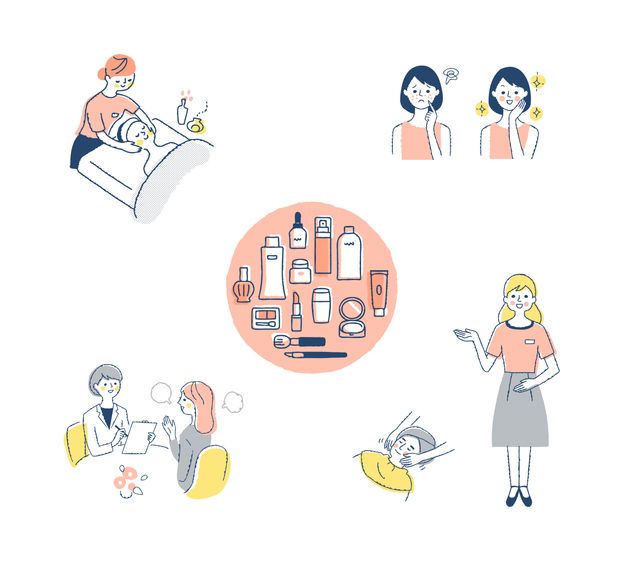

Book Now to Experience
F8 Hair Regrowth Treatment
1 Minute Self-Registration
Date should not be before minimal date
Author: Leila Tan|Updated: 23 July 2024
Many people, especially as they get older, experience hair loss. Hair loss can be caused by many things, like genes, hormones, stress, illness, medications, or a lack of nutrients. Some vitamins and minerals may help stop or treat hair loss by helping hair follicles grow and immune cells work normally, but do you know how to find the right one that can support hair growth? Read on to find out!

1
The Battle of Best Vitamins for Treating Hair Loss and Help With Hair Growth
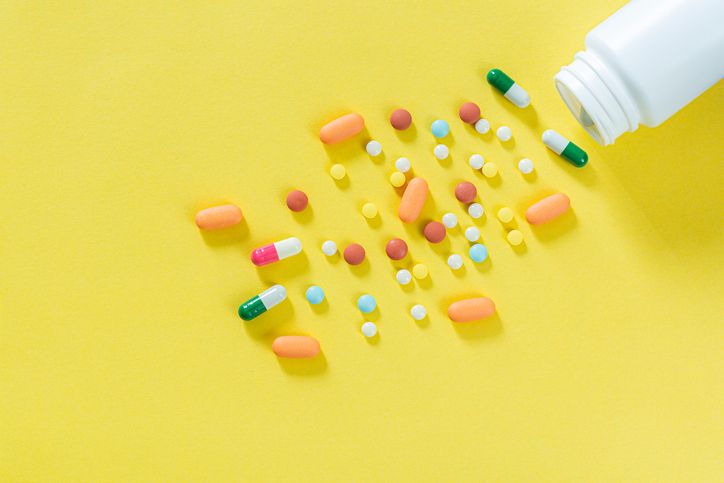
If you want healthy, shiny hair, you might be curious about which vitamins are best for hair growth. Several factors, like hormones, diet, stress, and the environment, can have an impact on your hair's health and growth. In this article, we'll focus on one of these factors—nutrition. In this article, we'll discuss the role that vitamins can play in preventing hair loss and encouraging hair growth.
Vitamin D
Given its role in regulating calcium and phosphorus levels, which are essential for strong bones and muscles, it's no surprise that vitamin D is also essential for hair growth. Growth of hair follicles is also promoted by vitamin D, and it may also help alleviate irritation of the scalp.
Androgenetic alopecia (AGA) and telogen effluvium (TE) are both forms of hair loss that have been linked to vitamin D deficiency, according to a study by Almohanna et al. Vitamin D supplements may be helpful for these disorders since they cause hair to become denser and thicker.
Iron
Getting enough iron in your diet is also crucial for luscious locks. Hair follicles, like the rest of the body's tissues, need oxygen, and iron-rich red blood cells do just that. Reduced blood and oxygen supply to the scalp is one reason for hair loss associated with anaemia, which can occur when you don't obtain enough iron.
Women are more likely to suffer from iron deficiency than men, and this is especially true during times of menstruation, pregnancy, and lactation. Researchers Almohanna et al. observed that women with AGA and TE hair loss may benefit from iron supplementation.
All the other vitamin candidates
Hair growth may also be aided by certain vitamins and minerals. They include vitamins A, B complex, C, and E, as well as zinc and selenium. In addition to aiding in cell growth and division, protecting against oxidative stress and inflammation, increasing blood flow and collagen creation, regulating hormone levels and gene expression, and bolstering the immune system are just some of the many functions served by these nutrients. However, their significance in hair loss is supported by little evidence, and additional study is required to determine their efficacy and optimal application.


2
3 Ways to Get the Right Hair Growth Supplements

When choosing a vitamin supplement, it is a tough mission as buying the wrong one may result in leaving the bottle to gather dust at home. To prevent that happens, these are the things to think about before getting your hair growth vitamins or hair growth supplements:
Know the actual amount of hair vitamins you need
What kinds and how much vitamins you need. This depends on your age, gender, health, diet, and how you live your life. Your blood tests and medical history can help your doctor or a nutritionist give you a personalised recommendation.
The supplement's quality and safety
You should look for products that have been tested by third-party labs and certified by reputable organisations. You should also check the label for the expiration date, ingredients, allergens, and possible interactions with other drugs or supplements you are taking.
The cost and convenience of hair growth vitamins
How much the supplement costs and how easy it is to take. You should compare how much each serving costs and how many servings each bottle has. You should also think about how easy it is to take the supplement, such as the size, shape, and taste of the pills or capsules, or whether it comes in liquid or chewable forms. You may also want to look for products that come with free shipping, discounts, or guarantees that you can get your money back.
Read More

3
The Recommended Dosage of Hair Growth Vitamins

There is no single hair growth vitamin that can prevent or treat hair loss, but certain vitamins may aid in the growth and maintenance of healthy hair.
Taking Biotin as example, this B-complex vitamin that helps the body convert sustenance into energy, is one of these vitamins. A deficiency in biotin can result in hair thinning, brittle nails, parched skin, and other symptoms.
The recommended daily allowance (RDA) of biotin for adults is 30 micrograms (mcg) per day. However, some individuals may take biotin supplements in higher doses to enhance hair quality and growth. There is insufficient evidence to determine the optimal biotin dosage for hair loss, but studies have used concentrations ranging from 2.5 to 10 mg per day.
Even at high concentrations, biotin is generally considered safe and well-tolerated. However, potential adverse effects of biotin supplementation include allergic reactions, including hives, itching, swelling, and respiratory difficulties. These are uncommon but severe conditions that require immediate medical care.
Other vitamins that may have some benefits for hair health include vitamin E, which has antioxidant properties that may protect hair follicles from oxidative stress and injury, and vitamin D, which may stimulate hair growth by activating stem cells in the hair follicle. To corroborate their efficacy and safety for hair loss, however, more research is required.
Before taking any vitamin supplements for hair loss, it is necessary to consult with your healthcare provider to determine the cause of your hair loss and the correct dosage and duration of treatment. An excess of any vitamin can have negative effects and interfere with the effectiveness of other medications or health conditions. Therefore, it is best to take supplements according to the instructions on the label or the advice of your healthcare provider.
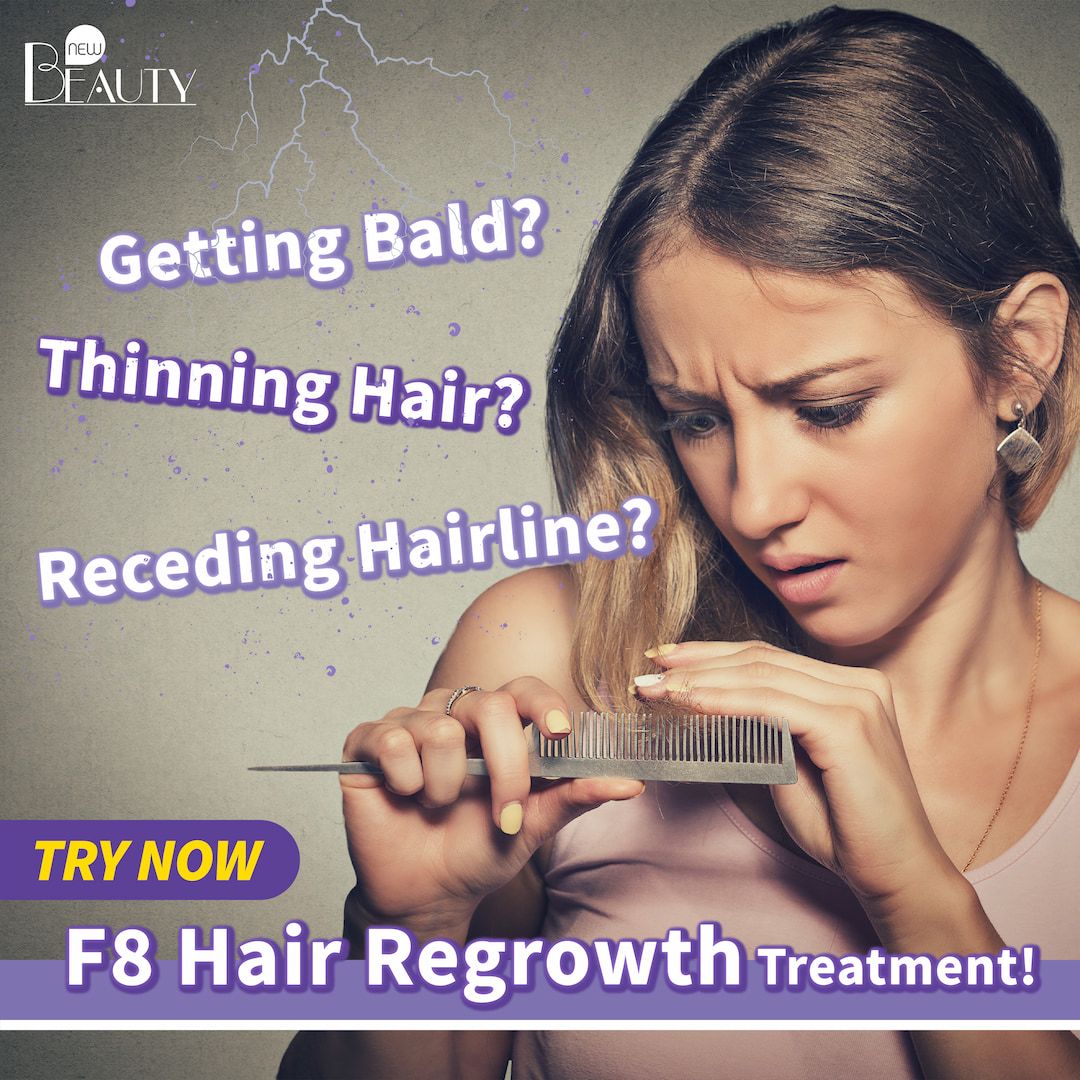

4
How To Further Support Hair Health Asides from Taking Hair Growth Vitamins?
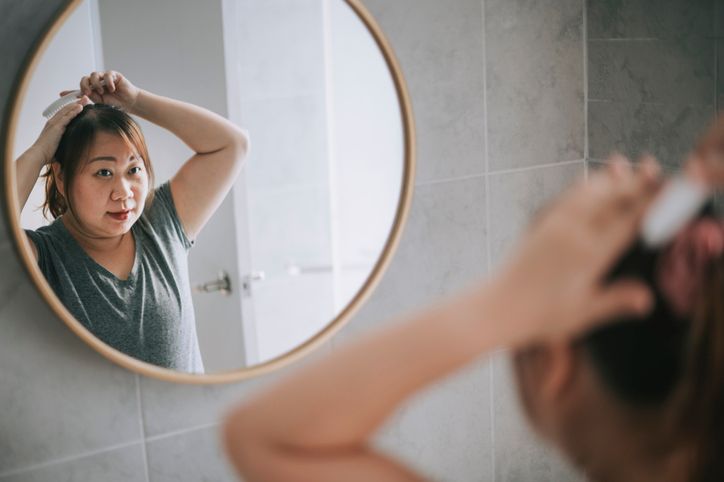
You can promote healthy growth of your thinning hair by taking vitamins for hair growth, but that's not the only option. In addition to the aforementioned methods, you can also:
When taking hair-growth vitamins, avoid further damaging your hair.
Be careful not to let your thinning hair come out repeatedly; the easiest method to solve an issue is to stop making it worse. Avoid damaging your hair by subjecting it to excessive heat, chemicals, or a tight haircut. Use loose styles that don't pull on your scalp or hair follicles, and use mild products and appliances that protect your hair from heat and moisture loss.
Regular scalp massage has been shown to increase hair growth.
Regular scalp massages can increase blood flow to the hair follicles, promoting healthy hair growth. A few minutes a day spent massaging your scalp in circular motions with your fingertips or a scalp brush will help promote healthy hair growth. Essential oils, such as lavender, rosemary, or peppermint, can be added to the massage to boost its effects.
Try getting low-energy laser treatment.
The use of low-level laser light (low laser energy therapy), is a noninvasive method of stimulating hair follicles and so promoting hair growth. Low-level laser therapy is another name for photobiomodulation (LLLT). Low-energy laser therapy has been effective for treating a wide range of hair loss conditions, including androgenetic alopecia, alopecia areata, telogen effluvium, and chemotherapy-induced alopecia. Hair growth may be stimulated after treatment with a low-energy laser due to an increase in cellular metabolism, a decrease in inflammation, and the stimulation of stem cells.
However, the success of low energy laser therapy can be affected by a number of factors, including the underlying reason and degree of hair loss, the laser's type and wavelength, the patient's response to treatment, and the number and length of treatment sessions.
Reducing mental strain and increasing restful sleep.
Hormonal disruption brought on by stress has been linked to diminished hair growth and quality. Alopecia areata and telogen effluvium are only two of the hair-loss diseases that can be triggered by stress. In addition to improving your overall health, sleep promotes the regeneration of new hair follicles.

Book Now to Experience
F8 Hair Regrowth Treatment
1 Minute Self-Registration
Date should not be before minimal date

5
Vitamins For Hair Growth: You Can Also Find Them From Foods!
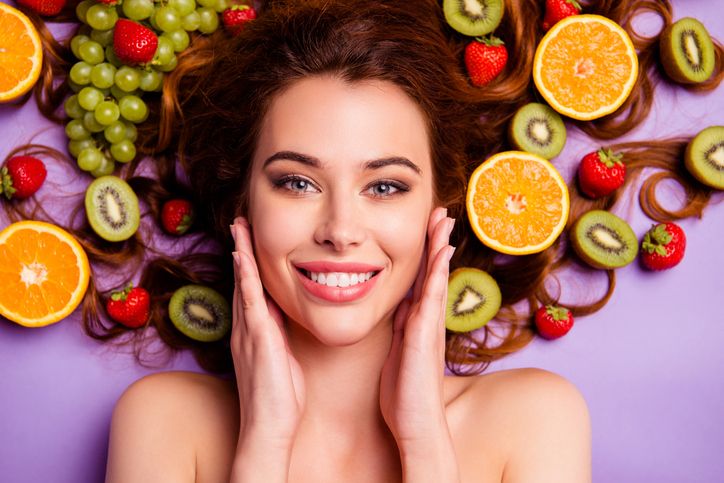
You need to eat a diet full of hair-growing nutrients if you want your hair to be strong and healthy. Some of the best nutrients for hair development are as follows:
Eggs
Biotin and protein, both found in abundance in eggs, are necessary for healthy hair development. Keratin, a structural protein found in hair, can be synthesised with the help of biotin. Hair thinning may result from deficiencies in either of these nutrients. Eggs are a good source of zinc, selenium, and other nutrients that are good for hair.
Berries
Vitamin C, which is abundant in berries, is a powerful antioxidant that prevents free radicals from damaging hair follicles. Iron, a mineral that stimulates hair growth, is better absorbed by the body when vitamin C is present. Collagen, a protein that reinforces hair follicles and prevents breakage, is produced more efficiently with the aid of vitamin C.
Spinach
Green spinach is loaded with healthy nutrients like iron, folate, vitamins A and C. Hair growth is aided by the iron in red blood cells because it allows them to carry oxygen to the hair follicles. Folate helps keep cells from breaking down and contributes to the creation of red blood cells. Sebum, a naturally occurring material that lubricates and protects hair from drying out, can be produced by the scalp with the help of vitamin A. Iron absorption and collagen formation both benefit from vitamin C.
Salmon
Protein, vitamin D, and omega-3 fatty acids abound in salmon, making it a healthy choice. Anti-inflammatory qualities of omega-3 fatty acids allow them to minimise inflammation on the scalp, hence facilitating faster hair growth. Protein makes up hair follicles, and vitamin D controls hair growth.
Carrots
Carrots are rich in vitamin A, a nutrient required for cell reproduction and growth. The epidermis benefits from vitamin A because it increases sebum production, which is good for the hair and the roots.
Nuts
Nuts are a great snack that aids in hair development thanks to their high protein, biotin, zinc, selenium, vitamin E, and omega-3 fatty acid content. Vitamin E, a powerful antioxidant, prevents oxidative stress from damaging hair. Biotin, zinc, selenium, and omega-3 fatty acids are a few other nutrients that support healthy hair and help prevent loss.
Seeds
Including seeds to your diet is another easy way to do so. There is a great supply of healthy fats, vitamin E, zinc, and selenium. These nutrients help shield hair from damage caused by free radicals, inflammation, and lack of water. They additionally guarantee enough oxygen and blood flow to the scalp and hair follicles.


6
Last Few Words

In conclusion, vitamins for hair growth are important for hair health and may help prevent or treat hair loss caused by a lack of nutrients, such as vitamin C deficiency, iron deficiency and more. Nonetheless, they are not a magic bullet and shouldn't be used instead of a healthy diet and way of life, and taking too much of some vitamins and minerals can be harmful and lead to side effects like toxicity or drug interactions. So, try on other methods aside from solely relying on vitamins will be the ultimate way to support hair growth.
FAQ
1.What is hair density, and how do I determine it?
A: Hair density is determined by the number of hairs per square inch of epidermis. It varies from person to person and is influenced by heredity, age, hormones, health conditions, and treatments. Using a ruler and a hair clip, you can divide a one-inch square of your cranium to determine your hair density. Then, multiply the number of hairs by 100 to obtain the hair density in hairs per square inch.
2.How does folic acid affect hair growth?
Folic acid is a synthetic form of the vitamin folic acid, which is essential for cell division and DNA synthesis. Folic acid is a common constituent in hair growth supplements and products, as it can stimulate the production of new hair follicles and prevent hair loss. However, there are insufficient scientific studies to support the safety and efficacy of folic acid for hair growth. Therefore, you should consult your physician prior to taking any supplements or products containing folic acid.
3.What is male pattern hair loss and why does it occur?
Male pattern hair loss, also referred to as androgenetic alopecia, is the most prevalent type of hair loss in males. This condition is characterised by a receding hairline and sparse hair on the crown and temples. The primary cause of male pattern hair loss is the hormone dihydrotestosterone (DHT), which binds to hair follicles and gradually causes them to diminish. This eventually results in shorter, finer hairs that fall out. Genetic, age-related, and environmental factors influence male pattern baldness.
4.What is female pattern balding and what causes it?
Female pattern hair loss, also referred to as female androgenetic alopecia, is a form of hair loss that impacts women. It is characterised by diffuse hair thinning on the top and front of the cranium, while the hairline remains intact. The main cause of female pattern hair loss is also the hormone DHT, which affects hair follicles in a manner similar to that of males. Other factors, such as menopause, pregnancy, stress, illness, medication, and nutritional deficiencies, may also initiate or exacerbate female pattern hair loss.
5.How amino acids promote hair growth?
Amino acids are the building elements of protein, which constitutes one-fifth of the human body and is the principal constituent of hair fibre. Amino acids are essential nutrients for healthy hair growth because they stimulate new hair growth, provide sulphur to hair cells, enhance hair's strength, elasticity, and texture, promote blood circulation around the hair follicle, and promote collagen production. Nine of the 22 amino acids are essential and cannot be synthesised by the organism. These essential amino acids can be found in a variety of foods, including eggs, meat, dairy, almonds, seeds, soy, and legumes.

Book Now to Experience
F8 Hair Regrowth Treatment
1 Minute Self-Registration
Date should not be before minimal date
Recommended Articles
COPYRIGHT© NEW BEAUTY MANAGEMENT LIMITED 2025. ALL RIGHT RESERVED.


